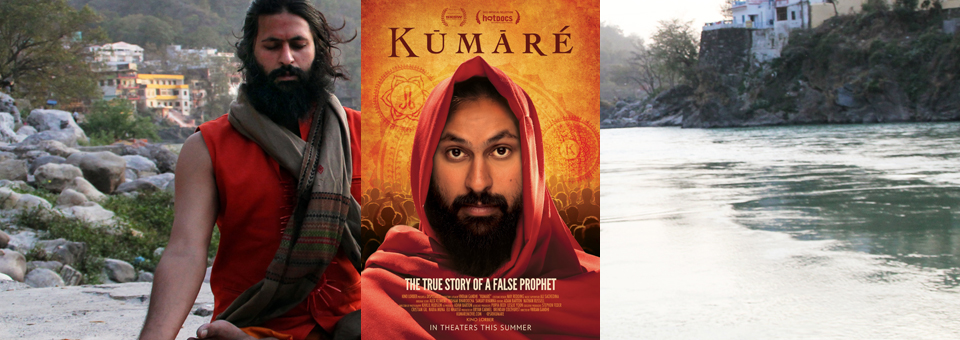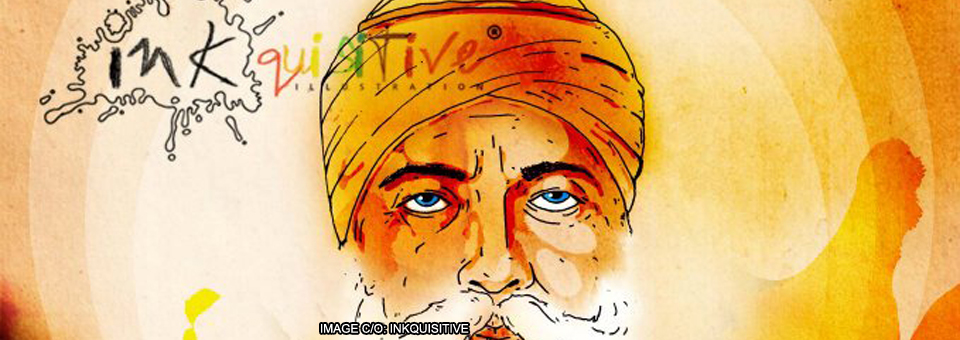Earlier this week I watched a documentary film called Kumaré which originally caught my eye because the leading male on the official poster is a doppelganger of a good friend of mine. Watching it was a good call as this is now one of my favourite documentaries.
The documentary is about a guy called Vikram Gandhi (bonus points for being a Gandhi and yet picking freedom) who transforms himself into an ‘enlightened guru’ by growing out his beard and using a fake Indian accent (inspired by his Nani’s); he then goes to America’s home of religious exploitation, Arizona, where he attends spiritual events recruiting unsuspecting folk to follow him. A fair few of them are educated, but are extremely vulnerable due to their desperation to find an escape from stressful or lonely realities.
Gandhi spends a lot of time with each follower and continuously reminds them that he isn’t what they think he is – he is just a reflection of what they want to see. His generic spiritual gobbledy-gook and vagueness results in no one questioning anything that he says as it is just too loosely termed, but they continue to swarm around him. Eventually he tells them the truth: that he is not an ‘enlightened guru’ at all, just someone playing dress-up and although every disciple doesn’t take it well, most of them appreciate the purpose of it all as it benefited their lives nonetheless.
Throughout the process he explains the importance of critical thinking, of creating goals through reflection and of taking responsibility for ones own spiritual growth. In making this documentary, Vikram Gandhi fought against spiritual exploitation by highlighting the ease with which a following can be created, but he also empowered those who needed help by giving them the tools they need to make a real change in their lives. It got me thinking about the over-reliance we have on people in all of our social spheres, whether it’s brown boys who are unable to participate in domestic issues as they rely so heavily on their mothers, or brown girls relying on validation of their beauty through social media (or vice versa for both sexes!) Outside of our families, are we over-reliant and too trusting of our Governments and political parties? Do they have our best interests at heart? Can we safely assume that the committee-wale, the gianis or the political leadership of Sikh organisations/parties are giving us what we need as a community? If we’re unsure, where is the system of accountability that will make us sure?
In the Sikh way of life the link to divinity is not ordained nor does it come from within a lineage. The link between man and divinity is direct so it doesn’t make any sense for a person to become spiritually superior to another person as it would disrupt our non-hierarchical view of humanity. Nor does it make sense to monopolise spiritual duties and delegate paths to others. Like Kumaré pushed, we must also take responsibility for our own spiritual journeys – we are the healers we have been waiting for.
There is a danger however, that I know all too well in not seeking advice or counsel. Too much self-reliance can make a hermit out of you and you can become too inward-looking and stop asking questions (thank goodness for the study circle I go to!) As good as this Kumaré film is (it’s on Netflix UK, check it out) it’s still just a grain of dust lost in the wind compared to the truth shown by Guru Nanak. It’s this path of Sikhi which frees me from the chains of social exploitation everyday, just as Vikram Gandhi wanted to showcase but on a greater scale. In reality, all I really need on this path of freedom is the guidance and support that comes from the duly appointed Guru Granth Sahib and Guru Khalsa Panth. This is the base I should use as a Sikh as my springboard to bring change into the Sarbat (World). We’re in a place where we may respect certain folks for their knowledge or skill, but we know the golden age is still coming where we will all be free. And like the documentary film showed, we have the key, nobody else.





